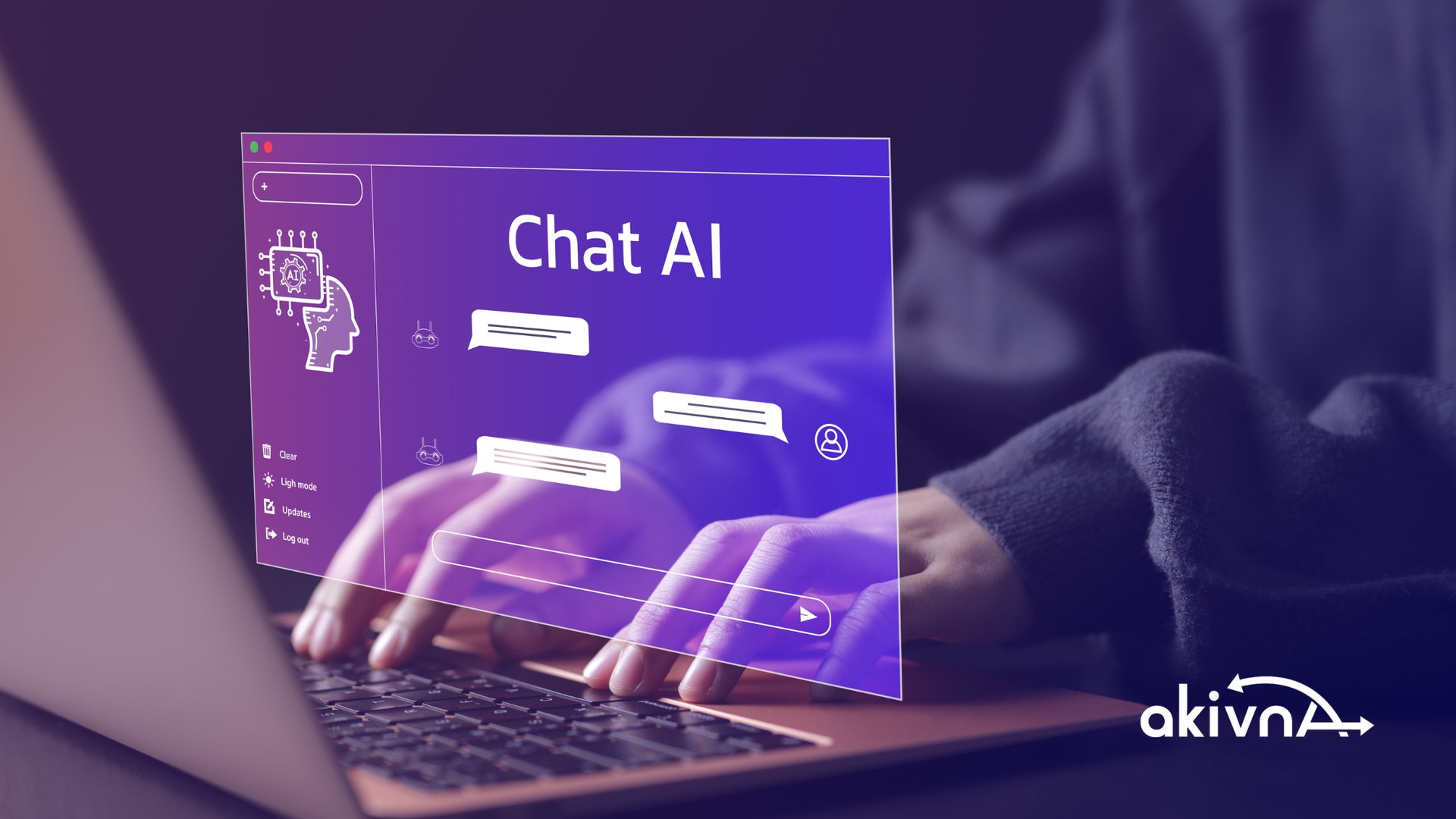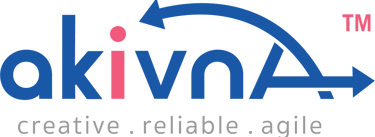Why Every Enterprise Needs a Custom GPT: The Strategic Imperative for 2025
Custom GPTs empower enterprises with tailored AI that improves efficiency, data accuracy, and decision-making. They boost customer service, enable secure integration with business data, and drive innovation - offering scalable, competitive advantages that generic models cannot match.
AIGPT
Akivna Technologies
9/15/20259 min read

In boardrooms across the globe, there's a question that keeps coming up: "How do we make AI work for us?" While 78% of organizations now use AI in some capacity, a staggering 42% report zero return on investment from their AI initiatives. The difference between success and failure often comes down to one critical factor: customization.
The era of generic, one-size-fits-all AI solutions is ending. Smart enterprises are moving beyond ChatGPT's public interface toward custom GPT implementations that understand their business, speak their language, and integrate seamlessly with their workflows. This isn't just about keeping up with technology trends—it's about building a sustainable competitive advantage in an AI-driven economy.
The Reality of AI Investment: Why 42% Fail
The statistics are sobering. According to recent research by Constellation Research, 42% of enterprises have deployed AI without seeing any meaningful ROI. An additional 29% report only modest gains. Even more concerning, IDC found that 88% of AI proof-of-concepts fail to transition into production—for every 33 AI pilots launched, only 4 graduate to wide-scale deployment.
What separates the winners from the losers? The successful 58% share common characteristics: they focus on specific business problems, maintain high data quality, and most importantly, they customize their AI solutions to fit their unique organizational needs rather than trying to force generic tools into complex business processes.
The companies achieving measurable AI ROI—like the 74% of executives who report returns within the first year—understand that the real value comes from AI that's purpose-built for their specific challenges, not adapted from consumer-grade tools.
What Makes Custom GPTs Different
A custom GPT isn't just ChatGPT with your company logo. It's a fundamentally different approach to enterprise AI that addresses the three core limitations of generic solutions: context, control, and compliance.
Context Beyond Public Knowledge
While public AI models excel at general knowledge tasks, they fall short when dealing with company-specific information. A custom GPT trained on your internal documentation, policies, and institutional knowledge becomes an extension of your organization's collective intelligence. It understands your product specifications, knows your customer personas, and can navigate your unique operational procedures.
Consider how Sandvik transformed their manufacturing operations with a custom Manufacturing Copilot built on Azure OpenAI. By training the system on years of product documentation, they achieved 30% productivity improvements and accelerated training processes—outcomes impossible with generic AI tools that lack domain-specific knowledge.
Control Over Data and Outputs
Generic AI platforms process your data on external servers, often using it to improve their general models. Custom GPTs offer complete control over data handling, processing, and storage. You decide what information the model learns from, how it's hosted, and who can access it. This level of control is essential for industries dealing with sensitive information, intellectual property, or regulatory requirements.
Compliance and Security by Design
Enterprise-grade custom GPTs can be designed with specific compliance frameworks in mind. Whether you're dealing with GDPR in Europe, HIPAA in healthcare, or SOX requirements in finance, a custom solution can embed these constraints directly into the model's behavior rather than hoping generic guardrails are sufficient.
The Business Case: Quantifying Custom GPT Value
The financial argument for custom GPTs becomes clear when you examine real-world implementations across different business functions:
Customer Support Transformation
Companies like Tumble Living have integrated CustomGPT.ai by embedding FAQ agents on their homepage, which efficiently handle customer inquiries 24/7, significantly reducing support tickets. They also developed a pioneering AI-driven size guide agent, creating the industry's first AI size guide for rugs that provides instant, accurate advice based on washer compatibility data.
Legal and Compliance Acceleration
Online Legal Services integrated CustomGPT.ai to enhance their live chat platform, particularly during out-of-office hours. Using AI assistants that provide empathetic and accurate legal advice, they've seen a doubling of sales since implementation, largely due to the AI's effective handling of customer interactions during off-hours.
Sales Enablement at Scale
Software companies are using custom GPTs that understand their entire product ecosystem to help sales teams explain features, generate personalized onboarding emails, and troubleshoot customer questions. The result is more consistent messaging, shorter sales cycles, and increased customer satisfaction.
The ROI calculation becomes straightforward when you consider that CustomGPT.ai customers typically see payback within 6-9 months, with some achieving up to 50-70% cost savings in support and IT service management.
Implementation Models: Finding Your Starting Point
The beauty of custom GPTs lies in their scalability—you can start small and grow strategically based on results and organizational readiness.
The Agent Model: Zero Infrastructure Investment
Many enterprises begin with a trading or agent model, where the custom GPT acts as an intelligent intermediary. This requires minimal upfront investment (as low as $50,000-$100,000) while delivering immediate value through improved information access and decision support. It's particularly effective for knowledge management and employee productivity enhancement.
The Integration Model: Embedding Intelligence
The next level involves integrating custom GPTs directly into existing business processes. This might mean connecting the AI to your CRM system, embedding it in your support portal, or making it part of your document review workflow. Companies like Toshiba achieved 5.6 hours per month in time savings per employee by deploying Microsoft 365 Copilot across 10,000 employees with custom configurations.
The Platform Model: AI-First Operations
Advanced implementations treat custom GPTs as core business infrastructure. These systems handle complex, multi-step workflows, make autonomous decisions within defined parameters, and continuously learn from organizational data. Companies at this level often see transformational rather than incremental improvements.
Overcoming Implementation Challenges
While the benefits are clear, custom GPT implementation isn't without challenges. Understanding these upfront helps organizations plan more effectively:
Data Quality and Preparation
The old adage "garbage in, garbage out" applies strongly to custom GPTs. Success requires clean, well-organized, and representative training data. Organizations often underestimate the effort required to prepare data for AI training, but this foundational work determines the quality of all subsequent outputs. Poor data quality is reported as a main problem in up to 85% of failed AI projects.
Change Management and Adoption
The technical implementation is often easier than the human element. Employees need training on how to interact effectively with AI assistants, and organizational processes may need adjustment to accommodate AI-enhanced workflows. Companies that invest in comprehensive change management see significantly higher adoption rates.
Ongoing Maintenance and Evolution
Custom GPTs aren't set-and-forget solutions. They require continuous monitoring, regular updates, and periodic retraining as business needs evolve. Planning for these ongoing costs and resource requirements from the beginning prevents surprises later.
The Competitive Advantage Perspective
In 2025, AI capabilities are becoming table stakes rather than differentiators. The question isn't whether to implement AI, but how quickly and effectively you can deploy AI that understands your business better than your competitors' AI understands theirs.
First-Mover Advantages
Organizations implementing custom GPTs now are building institutional knowledge and operational capabilities that will be difficult for competitors to replicate. Just as companies that embraced digital transformation early gained sustainable advantages, early custom GPT adopters are establishing positions that compound over time.
Network Effects and Learning Loops
Custom GPTs improve through use, creating positive feedback loops that benefit from organizational data and interaction patterns. The more your employees use the system, the better it becomes at serving your specific needs—a dynamic that creates increasing returns and raises switching costs for both employees and the organization.
Talent Attraction and Retention
Top talent increasingly expects to work with cutting-edge tools. Organizations with sophisticated AI capabilities attract better candidates and retain employees who might otherwise seek more technologically advanced environments elsewhere.
Security and Governance: Building Trust
Enterprise adoption of custom GPTs requires robust governance frameworks that address data security, model behavior, and regulatory compliance.
Data Sovereignty and Privacy
Unlike public AI services, custom GPTs can be deployed entirely within your infrastructure, ensuring complete data sovereignty. This is crucial for organizations in regulated industries or those dealing with sensitive intellectual property. The system can be configured to never store interactions, process data locally, and maintain complete audit trails.
Behavioral Guardrails
Custom GPTs can be programmed with specific behavioral constraints that reflect organizational values and compliance requirements. These guardrails go beyond simple content filtering to include sophisticated logical rules about decision-making, information sharing, and interaction protocols.
Continuous Monitoring and Auditing
Enterprise-grade custom GPT implementations include comprehensive monitoring capabilities that track model performance, identify potential issues, and maintain detailed logs for compliance purposes. This level of oversight provides the transparency and accountability required in regulated environments.
The Technology Landscape: Choosing Your Approach
Organizations have several options for implementing custom GPTs, each with different trade-offs regarding control, cost, and complexity:
Hosted Solutions vs. Self-Deployment
Platforms like CustomGPT.ai offer enterprise-grade hosting with professional support, making implementation faster and reducing technical overhead. Self-deployment provides maximum control but requires significant internal expertise and infrastructure investment.
API Integration vs. Complete Platforms
Some organizations prefer building custom applications using OpenAI's API or similar services, while others benefit from comprehensive platforms that include user interfaces, administrative controls, and pre-built integrations. The choice depends on internal capabilities and specific use case requirements.
Hybrid Approaches
Many successful implementations combine multiple approaches—using hosted solutions for general employee productivity while building custom integrations for mission-critical processes. This strategy allows organizations to realize value quickly while building more sophisticated capabilities over time.
Industry-Specific Applications
Custom GPTs are proving valuable across virtually every industry, but certain sectors are seeing particularly dramatic results:
Healthcare: Accelerating Clinical Decision-Making
Hospitals are implementing custom GPTs trained on clinical protocols and treatment guidelines, giving medical staff instant access to institutional knowledge without manual searches through documentation. The result is faster, more consistent clinical decision-making and improved patient outcomes.
Financial Services: Enhancing Risk Management
Banks and investment firms use custom GPTs to analyze complex financial documents, assess regulatory compliance, and support investment research. These systems can process vast amounts of financial data while maintaining the security and audit requirements essential in financial services.
Manufacturing: Optimizing Operations
Manufacturing companies are deploying custom GPTs that understand their specific processes, equipment, and operational procedures. Sandvik's Manufacturing Copilot helps with predictive maintenance, quality control, and production optimization while maintaining the safety and reliability standards required in industrial environments.
Legal: Streamlining Document Review
Law firms and corporate legal departments use custom GPTs to review contracts, research case law, and draft legal documents. The AI understands legal terminology, jurisdictional differences, and firm-specific practices, dramatically reducing the time required for routine legal work.
The Future of Enterprise AI
The trajectory is clear: AI is moving from experimental to operational, from generic to specific, from external to integrated. Organizations that embrace custom GPTs now are positioning themselves for a future where AI capabilities are deeply embedded in business operations rather than bolted on as afterthoughts.
Agentic AI and Autonomous Operations
The next evolution involves AI agents that can take independent action within defined parameters—automatically handling customer inquiries, managing vendor relationships, and optimizing resource allocation. Google Cloud's research shows that 52% of organizations now deploy AI agents in production, with early adopters seeing significantly higher returns.
Continuous Learning Organizations
Custom GPTs enable organizations to become true learning entities, where institutional knowledge continuously grows and improves. Every interaction, every decision, and every outcome becomes data that makes the organization smarter and more capable.
Ecosystem Integration
Future custom GPT implementations will seamlessly integrate across entire business ecosystems, connecting with suppliers, customers, and partners through AI-mediated interfaces that understand the context and requirements of each relationship.
Making the Decision: Strategic Considerations
For enterprise leaders evaluating custom GPT implementation, several strategic factors should guide the decision:
Business Readiness Assessment
Successful custom GPT implementation requires certain organizational prerequisites: clean data infrastructure, clearly defined processes, and leadership commitment to change management. Organizations should honestly assess their readiness across these dimensions before beginning implementation.
ROI Timeline and Expectations
While some benefits appear immediately, others develop over time as the system learns and employees adapt to AI-enhanced workflows. Setting realistic expectations for both timeline and magnitude of returns prevents disappointment and ensures adequate resource allocation.
Competitive Positioning
Consider not just the direct benefits of custom GPTs, but their role in overall competitive strategy. Are you trying to catch up to more advanced competitors, maintain parity, or establish leadership? The answer influences both implementation approach and resource allocation.
Industry Success Stories: Proven Results
Real-world implementations demonstrate the tangible value of custom GPTs:
MIT Entrepreneurship Center deployed ChatMTC using CustomGPT.ai, creating a generative AI solution that provides trustworthy responses based on MIT's entrepreneurship resources. The system compiled knowledge from various formats including documents, help desk repositories, and YouTube videos, eliminating hallucination problems while providing accurate, context-aware responses.
NITRO! Bootcamp helped over 30 small businesses develop AI-powered chatbots within just 90 minutes using CustomGPT.ai. Each business successfully created multiple custom chatbots, with some developing innovative applications like character-based chatbots and DALL·E prompt generators.
Biamp leveraged CustomGPT.ai to create internal HR bots and customer-facing solutions, significantly improving decision-making and customer interactions while automating routine tasks and providing detailed analytics on customer behavior and trends.
Conclusion: The Imperative for Action
The question is no longer whether enterprises need custom GPTs, but how quickly they can implement them effectively. The statistics are compelling: organizations with advanced AI capabilities see 10-20% improvements in sales ROI, while 74% achieve positive returns within the first year of implementation.
More importantly, the competitive landscape is shifting rapidly. As AI capabilities become commoditized, the differentiator becomes how well your AI understands and serves your specific business needs. Generic solutions may suffice for general tasks, but competitive advantage comes from AI that knows your customers, understands your processes, and speaks your business language.
The enterprises that will thrive in the coming decade are those that view custom GPTs not as technology projects, but as strategic investments in organizational intelligence. They recognize that in an AI-driven economy, the most valuable asset isn't just data—it's data transformed into contextual, actionable intelligence that's uniquely aligned with business objectives.
The technology is ready. The business case is proven. The only question remaining is whether your organization will lead or follow in the custom GPT revolution.
Ready to explore how custom GPTs can transform your enterprise? Consider starting with a pilot project focused on a specific business challenge, or consult with AI implementation specialists who can assess your organization's readiness and design a custom solution that delivers measurable results from day one.
Contact us
Whether you have a request, a query, or want to work with us, use the form below to get in touch with our team.


Registered Office
FF460A, Fourth Floor, JMD Megapolis, Sohna Road, Sector 48, Gurugram, Haryana, India -122018
© 2025, AKIVNA TEchnologies Private LIMITED
Contact Us
Support Email : info@akivna.com Careers Email : hr@akivna.com
Connect Us




